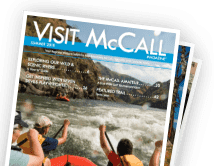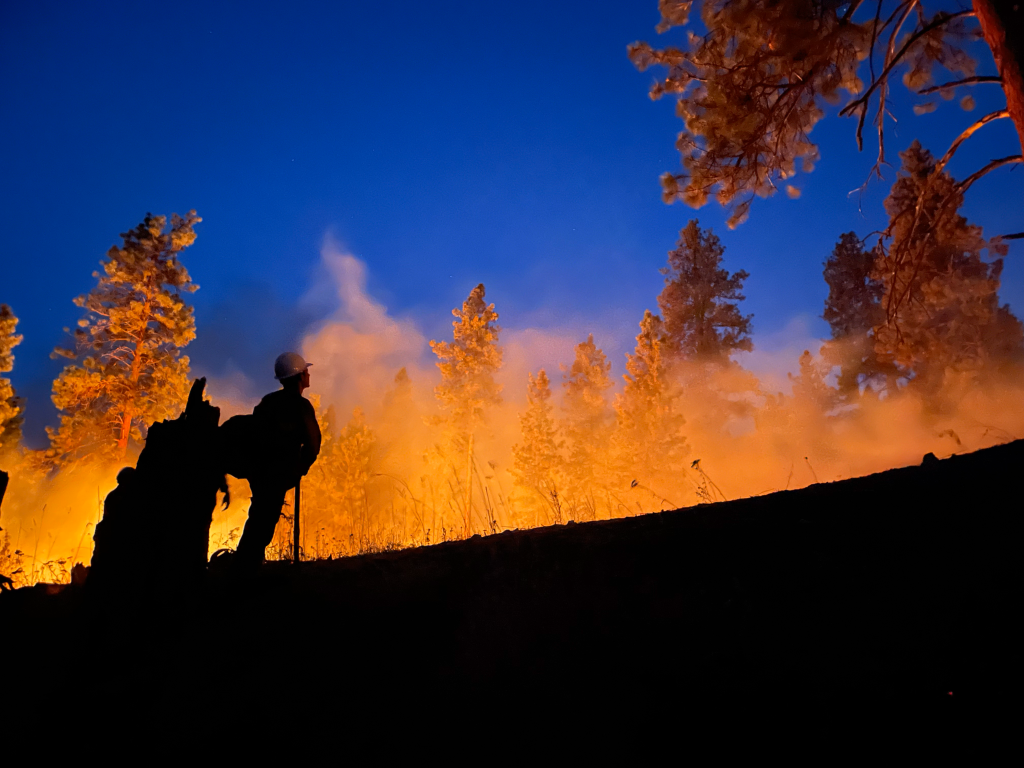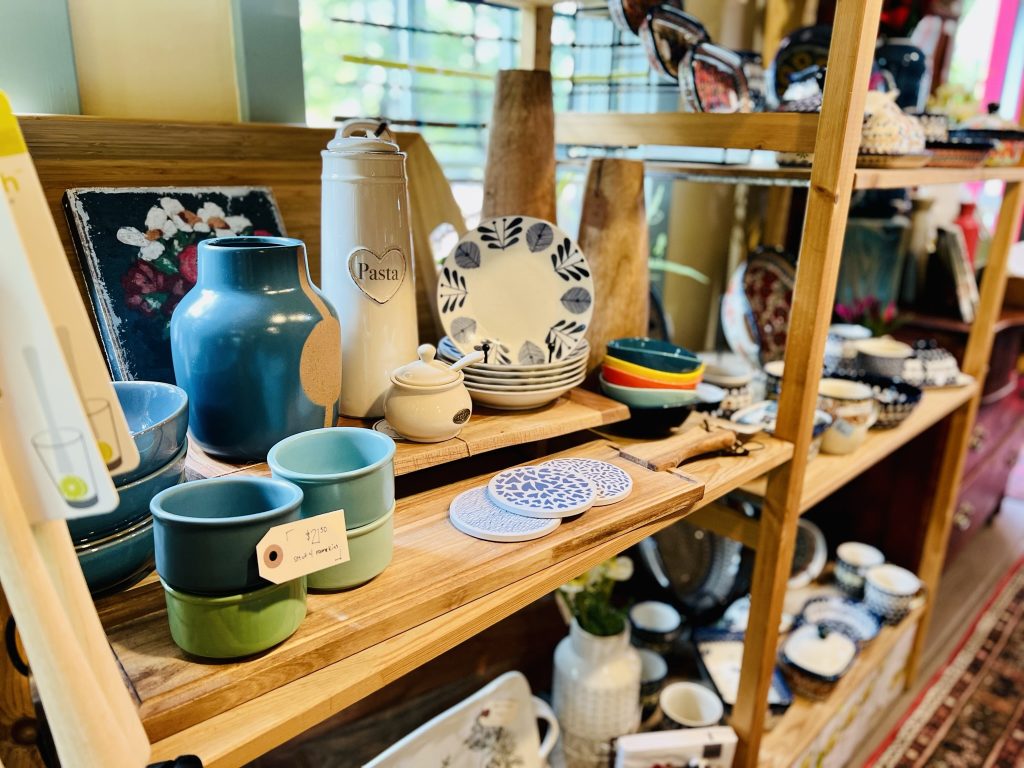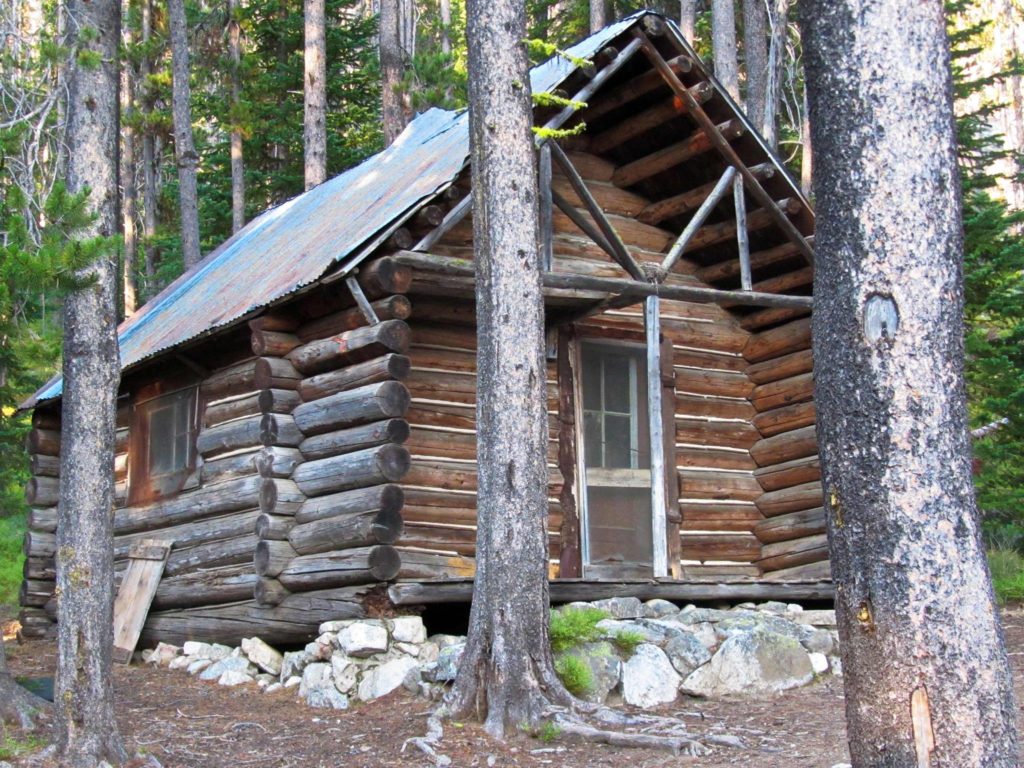By McKenzie Kraemer
Nature deficit disorder. Yes, it is really a thing. The phrase was coined in 2005 by Richard Louv in his best-selling book, Last Child in the Woods. The idea is that with the rapid development of technology over the last three decades, our entire society, and children in particular, are spending less and less time outside and more and more time immersed in the digital world.
Even in an outdoor mecca like McCall, the lure of a screen can be a hard to overcome. But nature is a powerful remedy, and access to the natural environment is one of the biggest reasons many locals choose to call this area “home.”
This love of the outdoors, paired with the readily accessible natural environment in McCall, has fostered a number of amazing programs to nip nature deficit disorder in the bud. From the McCall Winter Sports Club’s ski racing teams, to the Little Ski Hill’s after-school programs, to the youth Nordic and Biathlon club, there is no shortage of ways to get kids active outside from an early age.
In addition to these more traditional outdoor recreation programs, McCall is also home to a unique outdoor educational opportunity. Two, in fact. Roots Forest School caters to children 18 months to five years old, while the University of Idaho College of Natural Resources McCall Outdoor Science School (or MOSS for short) offers a Master’s program for college grads who then teach immersive classes for elementary school children.
What makes these two schools unique is the focus on place-based, STEM, outdoor education. While the educators throughout this community do a tremendous job of integrating relevant place-based learning opportunities for their students, both Roots and M.O.S.S. do so in an almost exclusive outdoor setting. Rain, snow, sleet or shine, these outdoor schools take the classroom to the forest. No nature deficit disorder allowed.
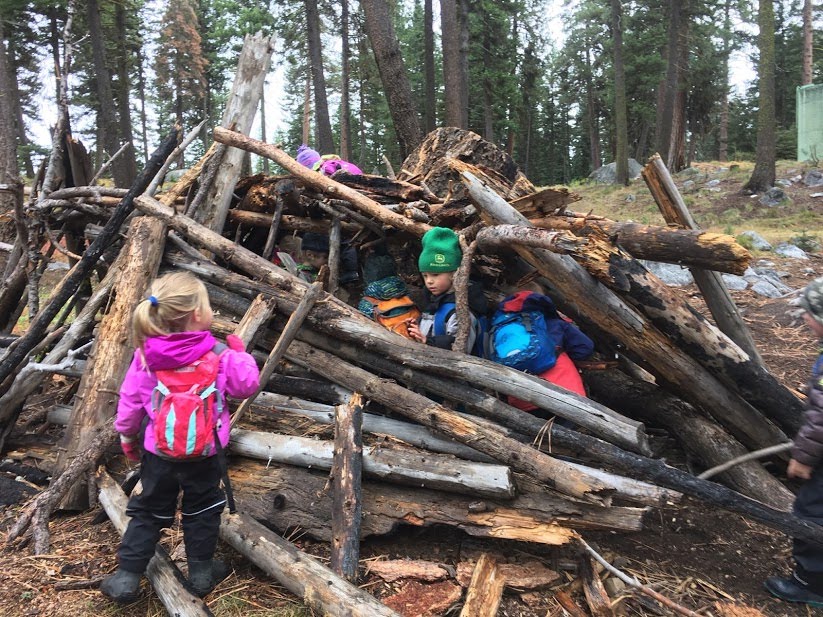
Roots Forest School
Roots Forest School got its start after founder and Executive Director Stephanie Day sought to create an opportunity to get her own son connected with the community. “We moved to McCall when my son was one and we spent a year going to story time at the library and toddler tumble time, but I kept hearing from families that it was difficult to find group activities for really young kids in the winter,” she says.
That got her wheels turning, and the next year, eight families partnered together to host a weekly play group for toddlers. “I spent that year researching different early education ideas, and when I heard about ‘forest school’ it was a perfect fit for this community – we all love being outdoors,” says Day. The puzzle pieces continued to fall into place when Roots found a permanent home at Ponderosa State Park, which continues to be an integral partner in Roots’ success today.
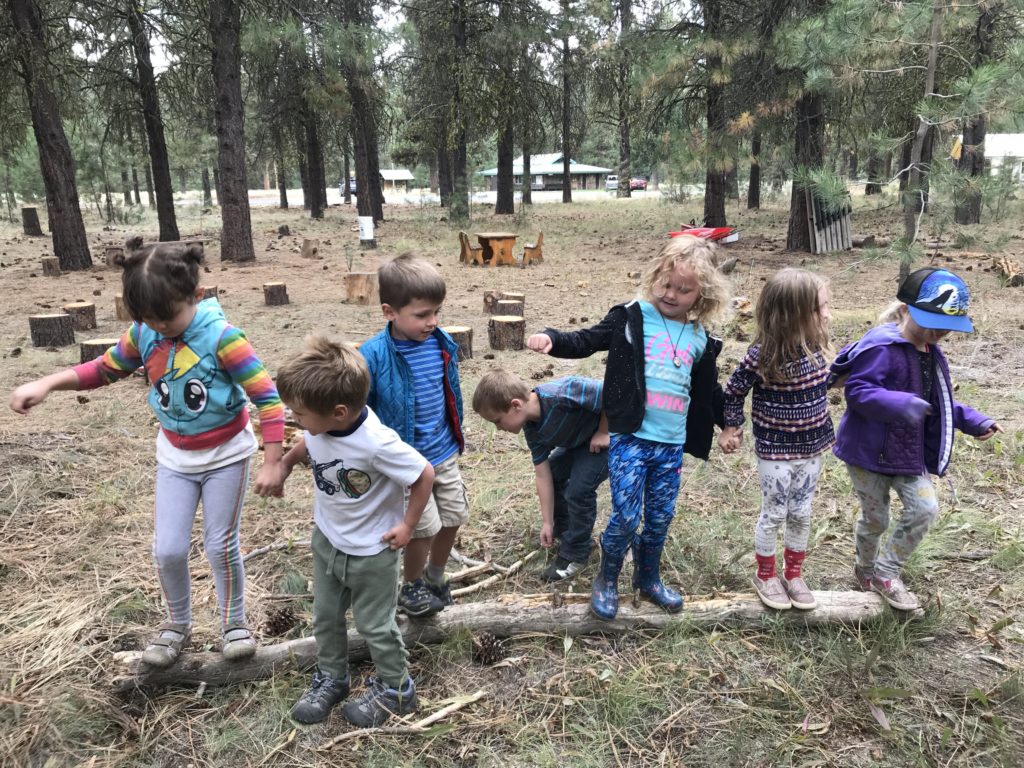
What started out as a toddler-focused program has grown to include classes for children 18 months to five years of age. And the appeal of these outdoor early education offerings is evident. “It is really all about connections,” says Day. “Roots grows every year and it is almost exclusively from word of mouth.” Roots is currently able to serve 70 children per school year in six different classes.
Classes are aptly named after the trees found in the Roots classroom. Two “Saplings” classes for children 18 months to three years of age, accompanied by a parent, are held once a week for 75 minutes. Drop off classes include the “Douglas Firs” and “Aspens” who meet twice a week for children ages three and four while the “Larches” and “Ponderosa Pines” meet three days a week for children ages four and five.
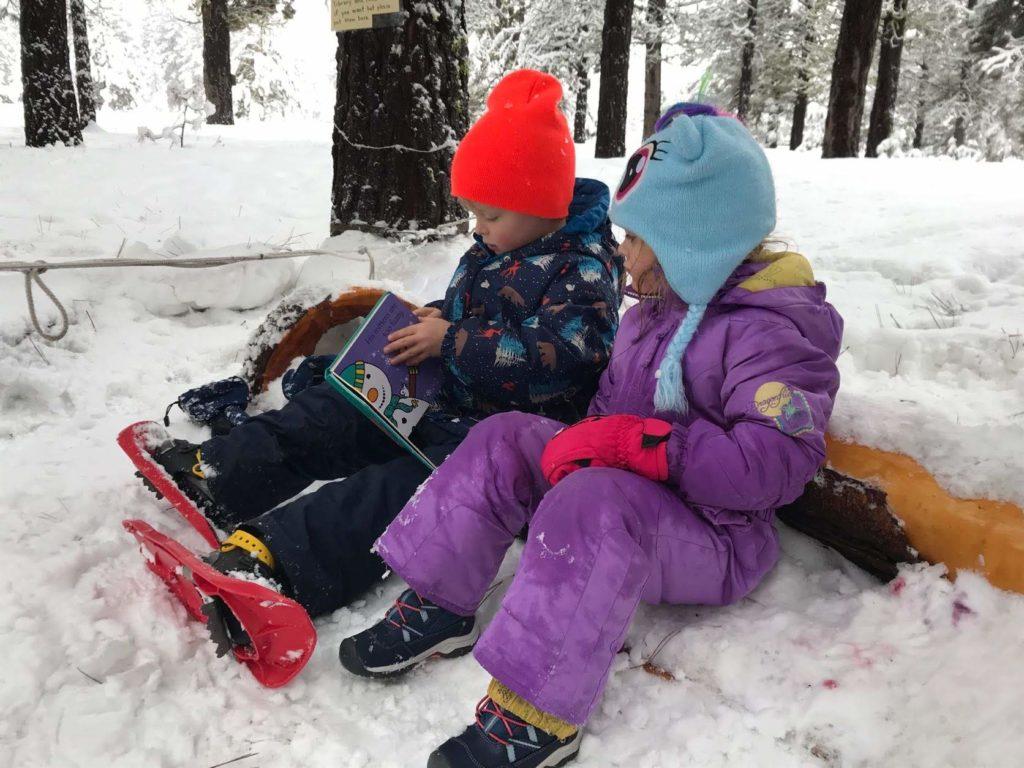
A typical day at Roots starts with an opening circle where students greet one another and get introduced to the day’s themes. The class then embarks on a “walkabout” where children engage in constructive play in the forest classroom. This may include activities like music or art, cooking in the forest kitchen, work in the building site, or exploring seasonal materials in the science center. Teachers help facilitate play based on the day’s themes and the interest of the students. “We work on an inquiry-based learning model,” says Day. “One of the biggest misconceptions about this model is that we just ‘play in the woods,’ but that play, and the experience, is very intentional.”
This is where the staff at Roots really shines. “Our teachers are basically researchers,” says Day. “They are taking notes and really cueing into the interests of the students and developing purposeful curriculum around those interests.” In this way, the teachers at Roots act as the guide – asking questions and throwing out provocations to help take students deeper into a topic or think about topics in a new way.
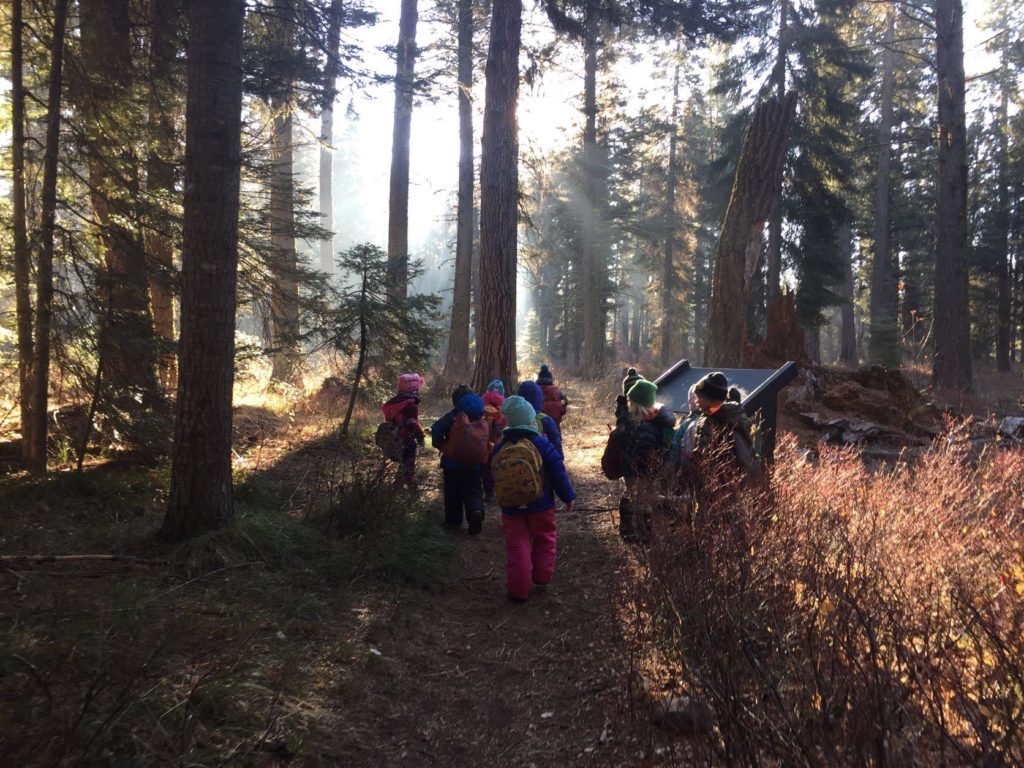
In addition to learning on-site, students at Roots also explore the McCall community. From a ski day at Tamarack Resort to dog sledding demonstrations, field trips to the McCall Golf Course to study water and snow melt to meeting with snow sculptures at the McCall Winter Carnival and learning how to build a sculpture, the kids get to do some pretty amazing things. “At its core, Roots is a community-based school,” says Day. The thousands of volunteer hours donated by retired teachers, Nordic instructors, dog sled mushers, and community members offering unique instruction opportunities make the McCall community an essential part of the Roots experience. “We simply could not do what we do without this amazing community,” says Day.
The stand-out aspect to all of Roots’ programs is that they happen almost exclusively outside. While there are times that classes will use indoor spaces like a wall tent or the Activity Center at Ponderosa Park, kids are generally out-of-doors in sunshine, rain, sleet and snow. “Surprisingly, having kids outside isn’t a huge hurdle,” says Day. “As long as they have the right gear for the weather.” To ensure that every student has the clothing to make a winter day outside comfortable, Roots runs a gear loan service to enrolled families. Scholarships are also funded by donors and alumni families to ensure any child that wants to attend can do so.
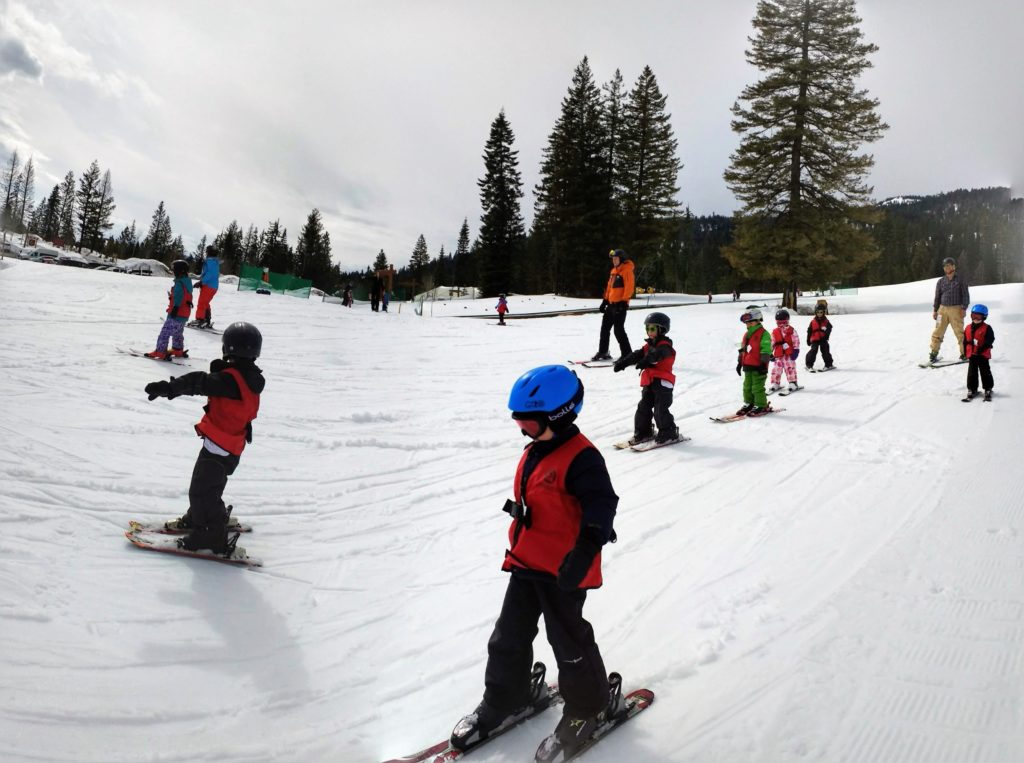
No matter the age, Day says the one thing kids leave Roots with is resilience. “It isn’t just about adapting to being outside in all sorts of weather,” she says. “It can be getting through a tough hike, a tough day. It is instilling the idea that if they can do this hard thing at the age of three or four, down the road they can get though other challenges. We are building grit, teamwork, collaboration and a real sense of community.”
That aspect of resilience has never been more important. Even though Roots operates outside, COVID-19 has forced them, like most schools, to re-work their protocols. “We are altering just about every aspect of our classes to ensure the health and safety of our students and families,” says Day. From new ways to pick up and drop off students to intensive cleaning protocols and requiring masks in indoor spaces, adjustments have been made across the board. At the end of the day, however, the essence of the Roots experience is alive and well.
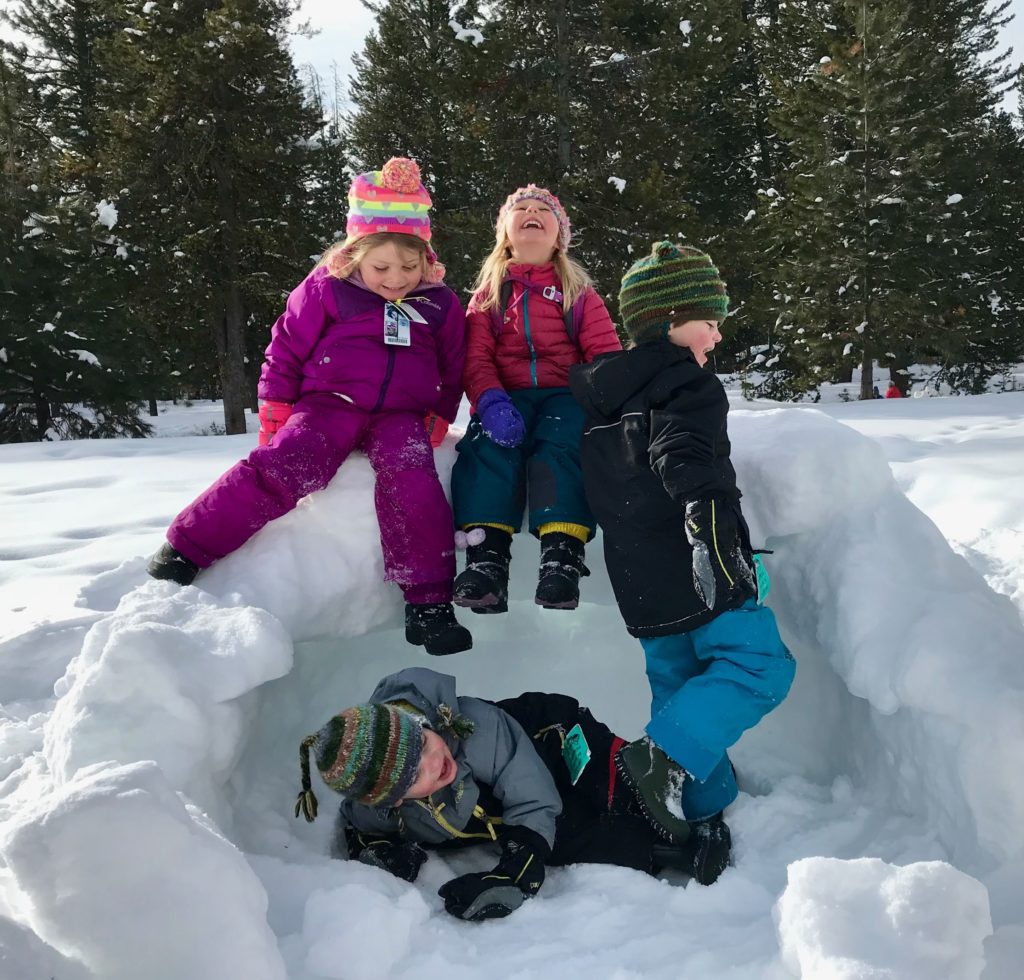
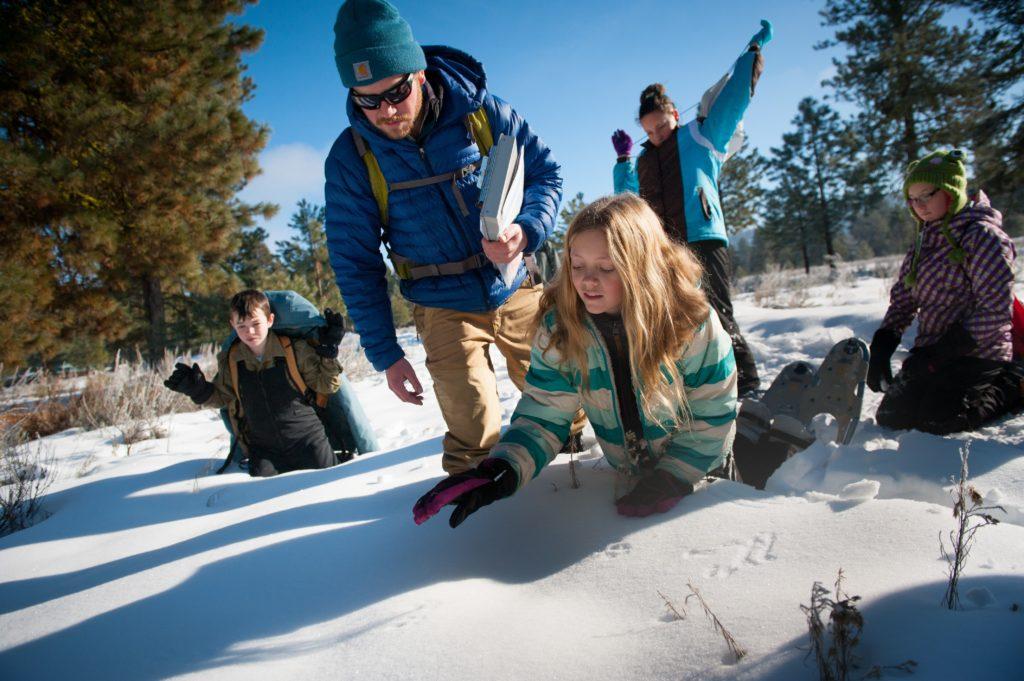
MOSS
Down the road from Roots in Ponderosa State Park is MOSS. The McCall Outdoor Science School got its official start in 2001, but its history in McCall goes back to the 1940s when the campus was used as a summer camp for University of Idaho’s forestry students. Some of the original buildings were constructed by the Civilian Conservation Corps (CCC). In the 1990s, Clara Bleak, a donor, wanted to put funding toward environmental education. With the summer camp in McCall getting less and less use, new funding for programming, and a vision to bring education not only to college students, but younger kids as well, the stars aligned and the McCall Outdoor Science School was born.
One of the aspects that makes MOSS so unique is the breadth of programming offered in one place… often at the same time and intertwined with one another. At the core of the school is the graduate program for students in the College of Natural Resources at the University of Idaho. What started out as a semester course has grown into a full master’s program. Graduate students typically take about 32 credits over the course of a year focusing on place-based education, leadership, ecology, science communication and field science teaching. In addition to these classes, graduate students also become teachers for youth programming at MOSS. “A huge part of the experience for graduate students is the teaching practicum,” says Karla Eitel, Director of the McCall Field Campus and Outdoor Science School. “The coursework provides the theory and the big, broad concepts and then the teaching practicum provides an opportunity to immediately put those theories into practice.”
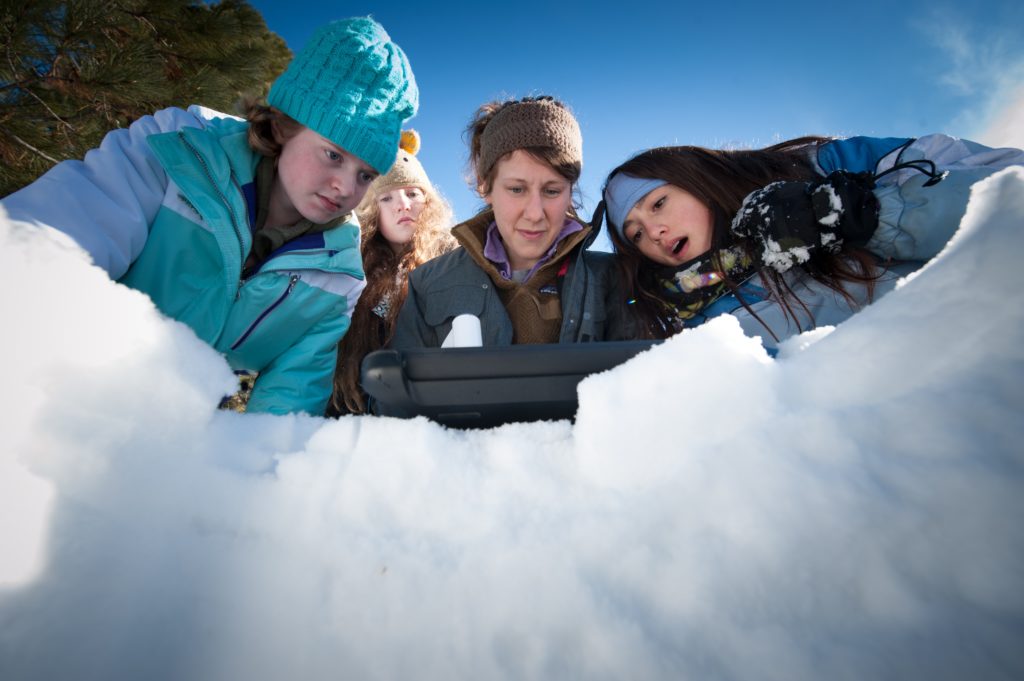
While the teaching practicum provides hands-on experience for the graduate students, it also creates an opportunity to share place-based STEM education for K-12 students. The youth programs offered at MOSS span a wide spectrum, including outdoor education curriculum taught by graduate students in local classrooms, summer programs for high school students, and a residential program where kids from schools across the state come and spend a week of immersive study on campus. In every case, the youth courses are taught by graduate students
“When I first arrived at MOSS I thought that the learning and teaching would be separate things,” says Hannah Wilson, a recent graduate of the master’s program at MOSS, “but the two really mesh together.”
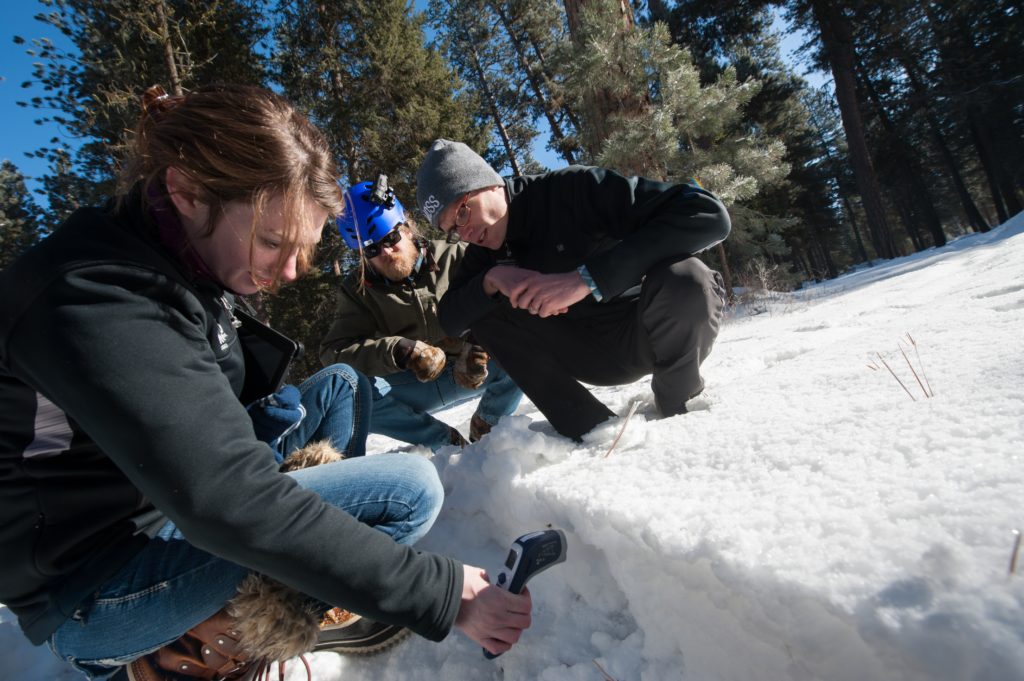
In a typical year, MOSS hosts a new school group every week from September to May. Graduate students are divided into two cohorts, one spending a week in class and the other spending a week teaching the visiting school groups, alternating this schedule weekly. This year, however, is not a typical year.
“We have always had the advantage of having the forest as our classroom,” says Eitel. “Even without the pandemic, many of our classes for both graduate students and our K-12 students are held outdoors.” And while MOSS has been able to welcome a new group of graduate students as usual, the youth programming has changed. “Given the current health concerns, we were not comfortable offering our residential programming for the fall semester,” says Eitel. “But it really created a fantastic opportunity to work with our local school district and serve the current needs of the community while still offering our graduate students the teaching experience.” This year, MOSS will be swapping the residential program for daily on-site programming for students in the McCall-Donnelly School District, kindergarten through fifth grade.
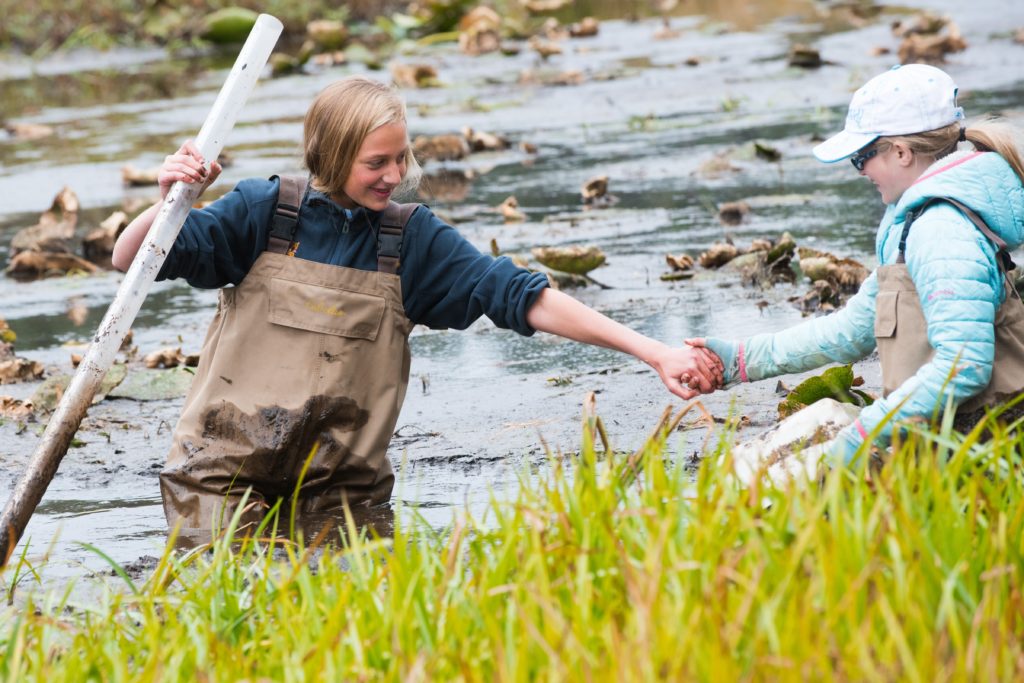
While these changes have meant a lot of new logistical and curriculum planning, it has also presented an opportunity for deeper connections. “The students who come for a week have life-changing experiences here,” says Wilson, “but we don’t get to see how that impacts them once they leave. Getting to work with and teach the same group of kids over the course of a year is a really exciting prospect because we can actually see how they grow and learn and build lasting relationships.”
In addition to the graduate program and K-12 outreach, MOSS is also a research hub. “It may be one of the least understood aspects of what we do here,” says Eitel, “but our faculty are always involved in some really interesting research projects.” These projects cover a wide range of topics, from climate change to tribal water quality governance. And while the research is technically separate from the other programs, it all works together. “To have faculty who are doing research in all of these diverse areas and across disciplines is such an asset,” says Wilson. “The perspectives and ideas they bring to class helps to connect the concepts we study in meaningful ways.”
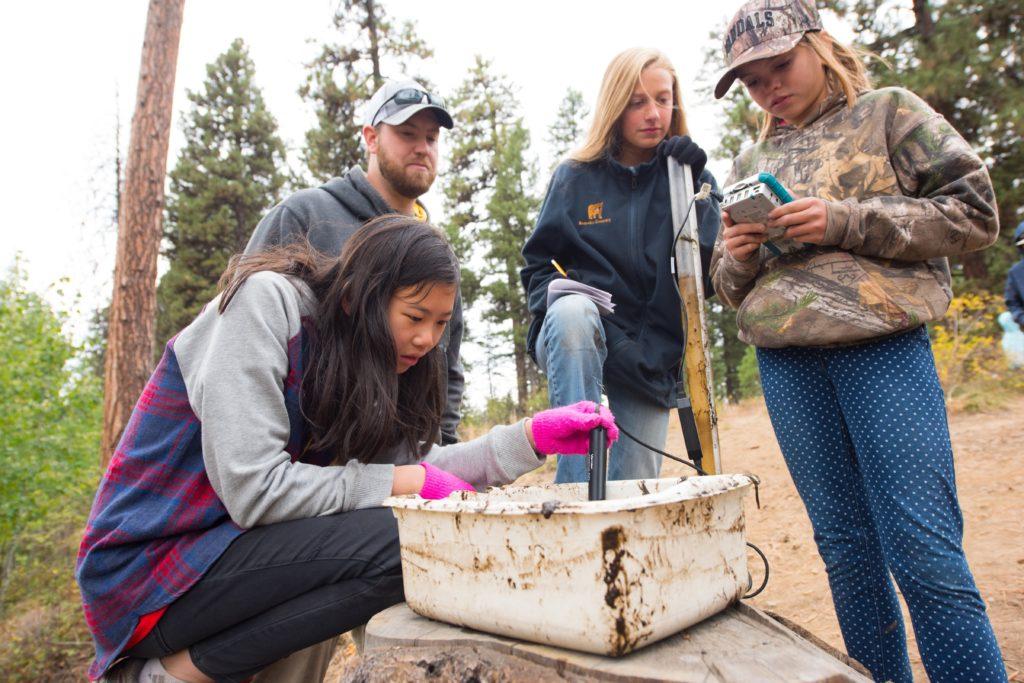
It also provides a path for graduates of MOSS to continue their education. Post-graduation, many MOSS alumni stay on to help as research assistants, including Wilson. “I had the choice to work on the main campus in Moscow or stay here in McCall and it really wasn’t a choice at all,” says Wilson. “Why would I want to leave this lifestyle and the connections I have made here? I want to continue to be a part of this community.”
Which is perhaps the most lasting takeaway of both MOSS and Roots Forest School…community. A deeper connection to the landscape and the people, a deeper understanding of the unique natural forces that shaped this special place, and a deeper appreciation for just how special this outdoor mountain community is.
